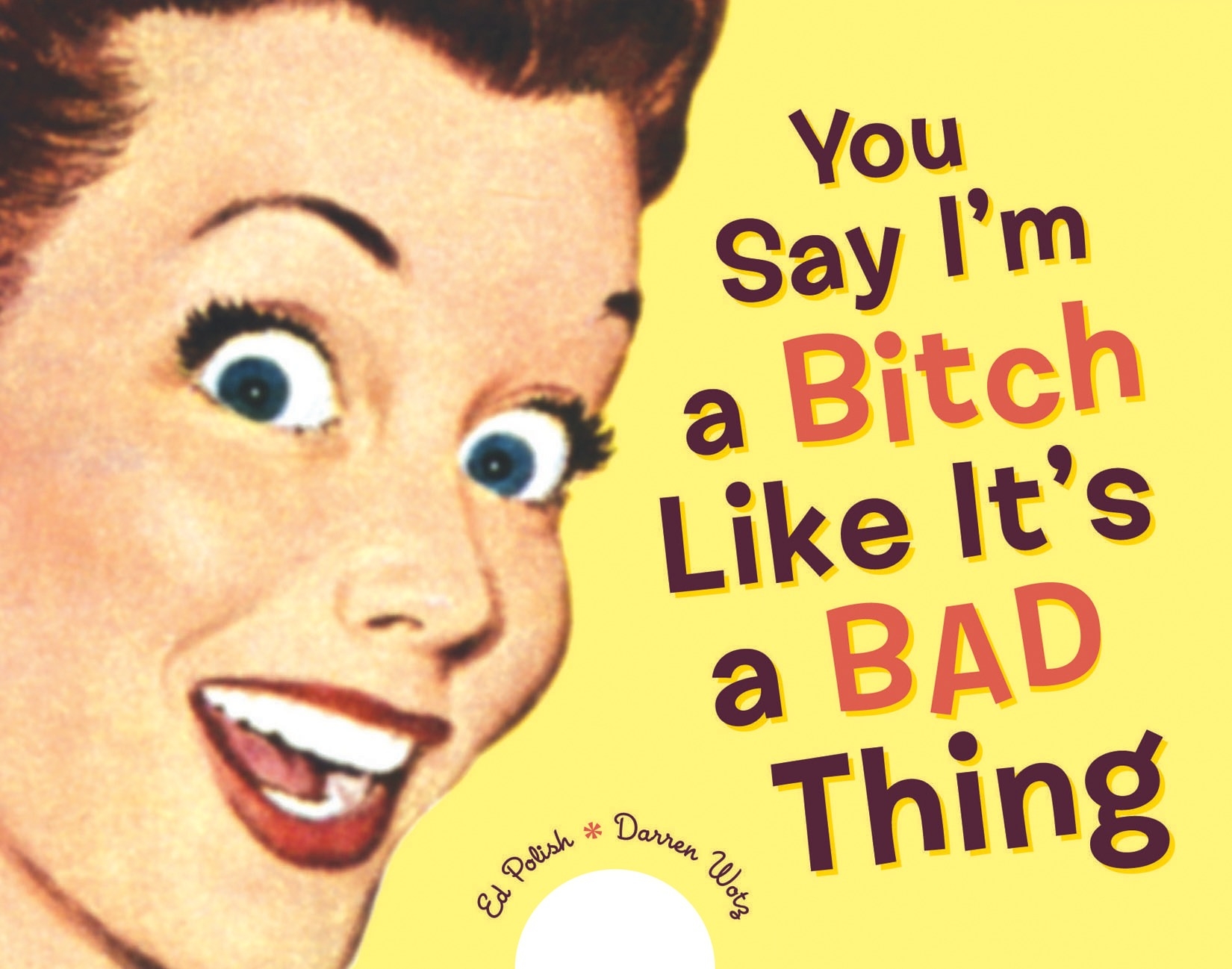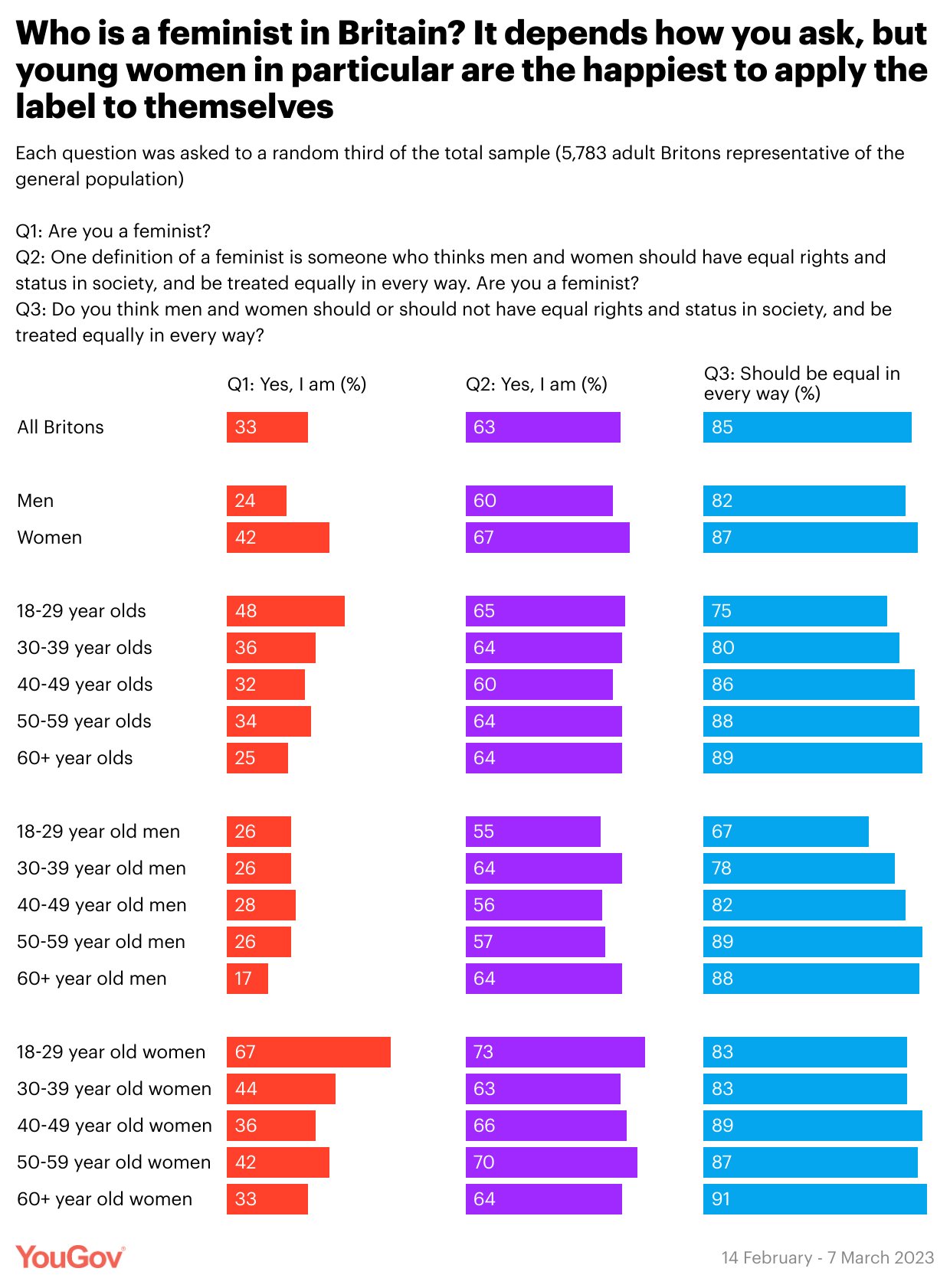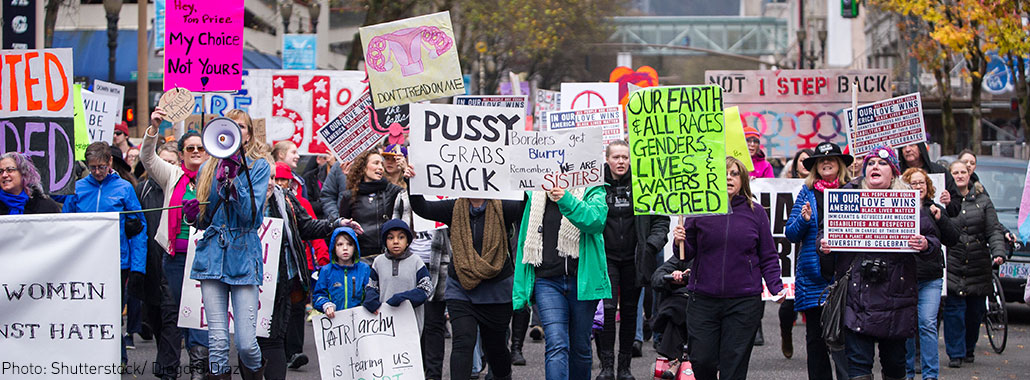
With a very quick google search, you can find out not only the definition for “feminist” but also for “bitch.” And when comparing and contrasting them, they have a lot in common (big surprise!).
Definitions of Feminist and Bitch
Oxford Languages, the dictionary Google uses, defines a feminist as: “an advocate of women’s rights on the basis of equality of the sexes; a person who supports feminism.” Additionally, Oxford Languages second definition of bitch is “a spiteful, unpleasant, or disliked woman,” “a person who is completely subservient to another,” or simply just defines it as, “a woman.”
Just looking at the definitions, the most these two words have in common are that, typically, they are terms used to refer to women, or at least, are associated with women. Taking a further look into the connotations with which these words are used, there is definitely an overlap. The label of “feminist” usually comes with the idea that those who identify as feminists are radical, angry, man-hating women. A “bitch” is an unnecessarily mean woman, typically a bully, or simply used as an insult towards women. Using the most credible dictionary for slang terms (a.k.a Urban Dictionary), I found that these connotations hold true. Urban Dictionary says a feminist is:
actually standing for equality, but in reality nowadays it is spreading to misandry (man hating) in the name of equality
And a bitch is:
a person-who could be of either gender, but stereotypically is a woman-who allows their spur of the moment negative emotional reactions to play far too large a role in their dealings with others
or my favorite response:
a bitch is just a bully in a skirt
Usage of “Bitch” and “Feminist”
According to Li Zhou in her Vox publication, the influx in usage of the word “bitch” increased alongside the changes accomplished during women’s suffrage around the 1920s up to the present. The 19th Amendment, passed in 1919, gave women that right to vote. Although this pattern is not a direct cause of the influx of “bitch” usage, it does provide a potential explanation for why “bitch” became more popular as an insult meant to put down women who now had power.
Similarly, “feminist” has also been used to put down women; in the past, women who have agreed with typically feminist goals (equity in healthcare, education, home, workplace, pay, etc.) tend to avoid calling themselves “feminists.” Recently, however, there has been an increase in women (and men) identifying as “feminists,” but there still exists a resistance to identifying with the term.
What about in 2023?
In the article, “Who is a feminist in the West in 2023? That all depends on the question,” by Joanna Morris, the results of a survey are shared. Surveyors measured the amount of people who are feminists, in seven Western European countries, under three different conditions: “word-only” group, “definition-only” group, and “definition+word” group.
The word-only group was simply asked, “Are you a feminist?” The definition-only group was instead asked, “do you think men and women should or should not have equal rights and status in society, and be treated equally in every way?” without the mention of “feminist.” And the “definition+word” group was first provided the definition, “a feminist is someone who thinks men and women should have equal rights and status in society, and be treated equally in every way.” and then asked “Are you a feminist?” directly after.
![YouGov on X: "How many people are feminists? It depends how you ask Split 2/ One definition of a feminist is someone who thinks [men and women should be treated equally]. Are](https://pbs.twimg.com/media/FqsYdAIXsAI7pIs.jpg:large) From the graphs, the results show that people in the “definition-only” group are more likely to identify as feminists based on ONLY the definition. As the use of “feminist” in the question increases (as it does in the “defitinion+word” group and the “word-only” group) the amount of people that agree decreases.
From the graphs, the results show that people in the “definition-only” group are more likely to identify as feminists based on ONLY the definition. As the use of “feminist” in the question increases (as it does in the “defitinion+word” group and the “word-only” group) the amount of people that agree decreases.
These results display, even now, the hesitation of identifying as a feminist; the article does not go into explaining why this difference exists, but it can be argued that the negative connotations attached to “feminist” can help explain this. Morris, on the other hand, does mention that younger people are more likely to identify as feminists (when asked Q1 or Q2) compared to older generations.


Women’s March
From the blue column in the image above, we can see that no matter the gender or age, people generally agree to the same extent that “men and women should have equal rights and status in society and be treated equally in every way.” The main differences are seen when people are directly asked “Are you a feminist?” Younger women are the most likely to say yes, but even then only 67% of women (in Britain) do. My interpretation of these results are that younger generations are less afraid of being labeled as feminists, and younger women are the least afraid of this term. One explanation is that, historically, the term is associated with “radical, violent, men-hating” women. Today, feminists are sometimes still seen as “men-hating, liberal, vulgar” women, but most of the people participating in the Women’s March, #MeToo Movement, and Pro-Abortion movements are the younger generations that don’t take the label of “feminist” as an insult.
Reclamation of “Bitch”
In the same way, “bitch” has gone from an insult to women to being a casual term used in everyday speech or a term of endearment you call your friends. This doesn’t mean that the actual definition of “bitch” has changed-a google search still defines “bitch” as a woman although, it does label this definition as derogatory and offensive-but that the connotation has changed. People are now comfortably calling people of all genders bitches, not just women, and even calling themselves a “bitch.”
The word can still be insulting, but there has been a reclamation and expansion of the word “bitch.” It is not something men can use to hold power over women anymore; men can be and are bitches too. The word does not carry the same weight as it did before; it has become more socially acceptable to call your friends bitches (I know everyone has gotten that one text from their friend that just says: “BITCHHHHH” when there’s tea to be spilled). Insults like “son of a bitch” are more casually tossed around. Though there is not a complete erasure of the negative connotations and true meaning behind bitch, the evolution of bitch has come a long way from its usage in the past and, in the future, I hope everyone can comfortably accept that it is okay to be a feminist and it is okay to be a bitch.
Thanks for reading, bitch.
^I MEAN THIS IN THE NICEST WAY POSSIBLE!